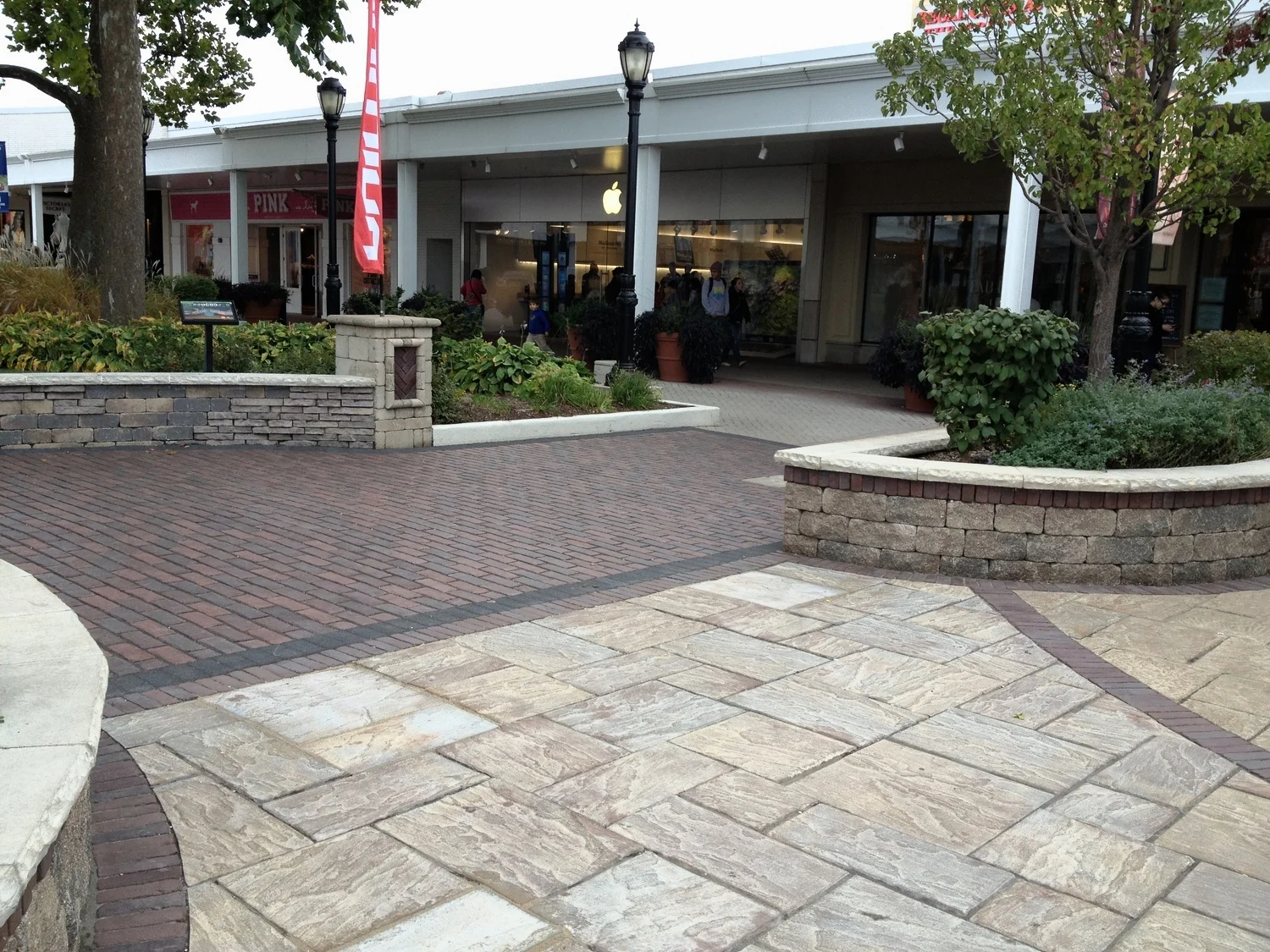Frequently Asked Questions
Do I start with the hardscape or landscape when implementing landscape plans?
A complete conceptual design for the property or new space is essential to successful results. Having a master plan to work from keeps your ideas of the overall space organized, regardless of the phase implementation. Create a space that is functional and appealing, then phase the project if necessary. The landscape plantings are a crucial element that should not be overlooked or eliminated, but completed, in most cases, after the hardscape/masonry elements are constructed.
How do brick pavers compare to other paving or decking materials?
Pavers, or segmental dry set paving materials are ideal for any freeze/thaw environment. Proper installation of the product results in a pavement that is firm, yet flexible. The joints between pavers allow the walkway, driveway, patio, etc. to move without cracking. In addition, they can be easily removed to allow for repairs or access to utilities. Unlike asphalt or concrete, concrete pavers are basically maintenance-free and do not need to be regularly sealed or replaced. Another advantage is the variety of textures, colors, and looks can be created, such as old world, contemporary, cobble, modern, or classic, in order to enhance the original integrity of your home.
Why do people build curved patios and walkways, instead of straight?
Brick or stone patios and walkways are often curved to serve an aesthetic design purpose. Incorporating curved lines softens the landscape by counteracting rigid lines. Meandering lines also create great visual interest, drawing your attention to certain areas and allowing you to slow down and fully appreciate the space.
Can I use brick pavers around a swimming pool?
Absolutely! Pavers not only enhance the area around a pool, they also provide a slip resistant surface to walk on. Also, if you ever have to service the area below the pavers, you can easily lift and re-lay the pavers.
How long do Unilock paver products last?
The strength of Unilock paving stones is two times greater than the strength of normal poured concrete. Unilock provides a lifetime guarantee on the structural integrity of its pavers to the original purchaser of the product for residential use.
Why are my pavers shifting/ sinking/ spreading/ heaving?
Many installations are subject to movement partially due to our location. In northern climes, the freezing-thawing cycle, in conjunction with moisture, can cause various problems. Others possible culprits include tree roots, chipmunks, ants, and improper installation.
How do I get rid of the weeds growing between my pavers/ stone?
Grass and weeds have space to grow when the joints are not properly filled. First, try spraying weed killer. If the weed growth is not reduced, contact a professional. For new installation, we use Polymeric Sand. The polymer additive locks the sand in the joints to help ensure the joint remain properly filled, leaving less room for weeds and grass to grow. On existing installations, a Joint Stabilizing Sealer is used to create a protective layer over the pavers and joints to also lock out weeds and grass.
Should I seal my pavers?
Sealer serves three purposes. First, it helps resist stain penetration. Second, it can enhance the color. And third, it binds the sand particles in between the joints making it difficult for weed seeds to germinate.
What are the benefits of sealing & polymeric sand?
Protects against oil, stains and dirt
Can enhance the original color
Makes cleaning easier
It penetrates deeply for maximum effectiveness and durability
Will not peel, discolor or make the surface slippery
It resists weathering (freeze-thaw cycles, sun, rain, etc) and de-icing salts.
It prevents premature aging and helps to retain that new look longer.
What is the whitish film on the surface of my pavers?
This is called efflorescence. It is caused by moisture and natural salts settling on the surface of your pavers. Efflorescence will not affect the structural integrity of the pavers, and will usually wash and wear off in the course of time. The recommended procedure is to allow this natural process to take place. However, if you would like to speed up the process, it can be removed by washing the pavers with a solution specifically designed for efflorescence removal.
What kind of de-icing salt is best for my pavers and stone?
Products containing calcium chloride are common, typically found in small, white, round pellets. Calcium chloride, unlike rock salt, will continue to melt snow and ice at temperatures near 0 degrees Fahrenheit.

